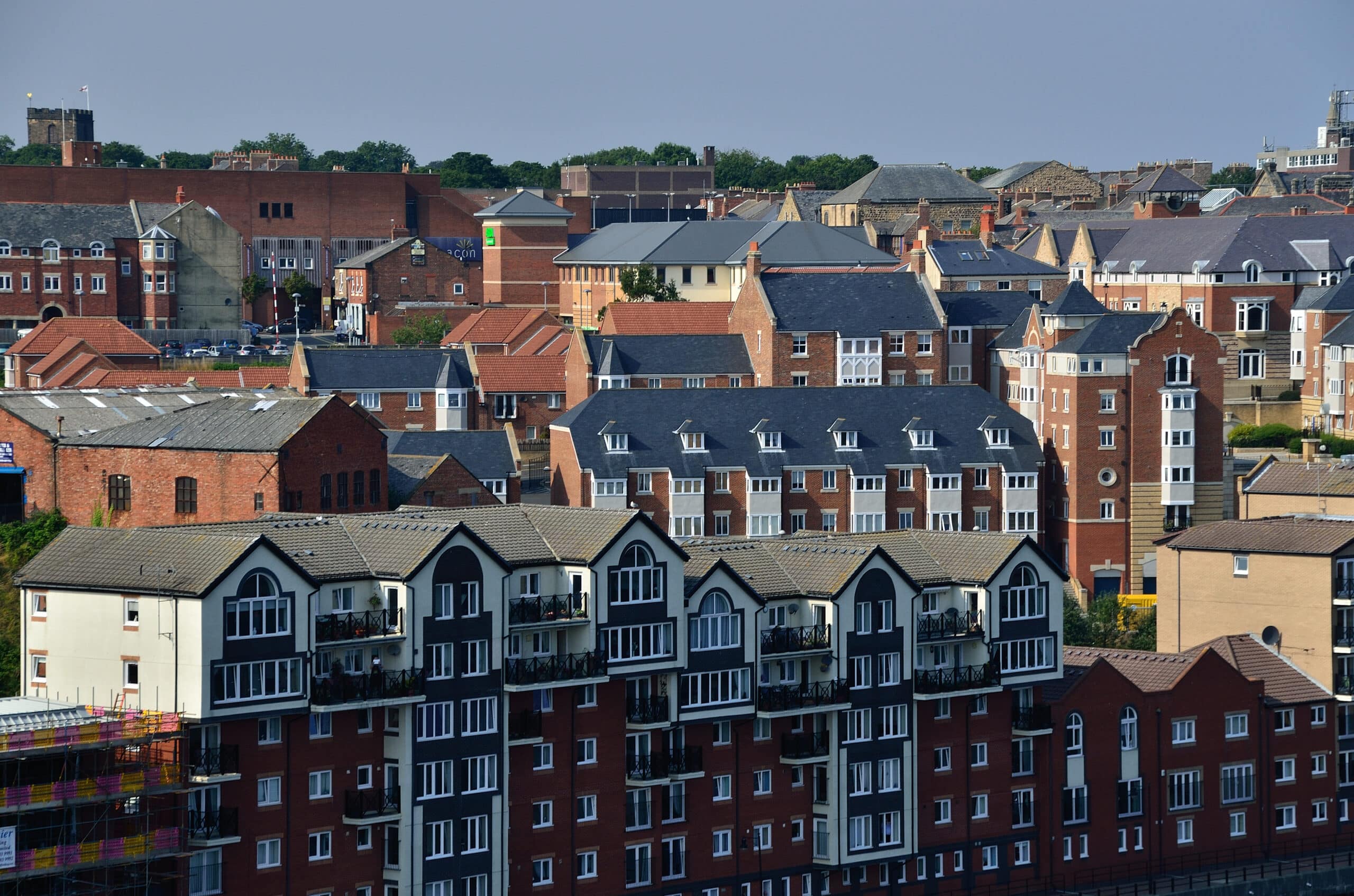The upcoming UK general election on July 4th has investors and stakeholders in the supported living and social housing market closely watching. Housing is expected to be a major issue during the campaign, with the policies proposed by the various political parties shaping the future direction of this investment sector.
As the nation grapples with an ongoing housing crisis and the need for affordable, sustainable, and inclusive housing solutions, the election outcome could significantly influence the regulatory environment, funding mechanisms, and overall investment climate for supported living projects. Investors are keen to understand how the manifestos and strategies outlined by the parties will address the housing challenges faced by the country and what the potential next government will do if they are elected.
When is the General Election in 2024?
It has been announced that the next general election in the United Kingdom will take place on Thursday, July 4th, 2024. This will see the dissolution of the current Parliament on 30th May 2024. From this date onwards, all Members of Parliament (MPs) will cease to hold their seats, and all official parliamentary business will be suspended until the new Parliament is elected.
While voting is not mandatory in the UK, all British citizens aged 18 and over are eligible to vote. However, exercising this democratic right is not compulsory, leaving the decision to cast a ballot in the hands of each voter.
The period between the dissolution of Parliament on May 30th and the general election on July 4th will be an important time for political parties and candidates to campaign and present their visions and policies. This window will also allow voters to familiarise themselves with the various party manifestos and make informed decisions about their preferred representatives.
Is supported living prioritised in the manifestos for the 2024 election?
Housing and social care are major policy areas in this general election. Party manifestos show each side’s plans for supported living – housing for those needing extra care and support. Their promises cover building more affordable homes and changing how care is funded. Looking at what Labour, Conservatives and others pledge during their election campaign tells us a lot about their priorities for this heavily relied-upon housing sector. Their different approaches could greatly affect supported living investments and services in the years ahead.
The Conservative Manifesto
Under the recent Conservative government, funding for new social rent homes has been very limited. Their Affordable Homes Programme has prioritised affordable rent tenures over traditional social housing for rent.
While the Conservative party strongly emphasises boosting overall housing supply and home ownership, its proposals for social housing and the supported living sector are more limited, with just two mentions in its manifesto.
Key Proposals
- Renewing the Affordable Homes Programme: Focusing on regenerating existing social housing estates.
- Legislating for “local connection” tests: Allow councils to give priority to those with long-term ties to an area for social housing allocation with Rishi Sunak’s ‘British Homes for British Workers’ policy.
- Maintaining the Right to Buy scheme: Council tenants can purchase their homes at a discount.
- Implementing a “three strikes” policy: Easier eviction of social tenants engaged in anti-social behaviour for landlords.
The Labour Manifesto
Labour believes that tackling the housing crisis is crucial. If elected, the Labour Party aims to significantly impact affordable housing, which would affect Yield Investing and investors. They have promised the “biggest boost to affordable housing in a generation,” focusing on social and council housing as part of their secure homes plan.
Angela Rayner MP, Labour’s Deputy Prime Minister and Shadow Secretary of State for Levelling Up, Housing and Communities, has criticised the current government for creating a housing emergency and argues that “safe, secure, affordable home is the foundation of a good life and one that people are desperately waiting for. But over the last thirteen years, the Tories have taken a sledgehammer to that foundation”.
Key Proposals
- Developer Accountability: Labour plans to make developers responsible for accelerating the production of new social and affordable housing.
- Government Grants: Labour pledges to unlock government grants, making the Affordable Housing Programme more flexible.
- Local Authorities and Housing Associations: They plan to provide long-term stability to local authorities and housing associations, encouraging continued investment in affordable housing.
- Enforcing Developer Rules: Strengthen rules to ensure developers fulfil their commitments and responsibilities to build social and affordable homes.
- Upskill Local Authorities: Improve local authorities’ skills in section 106 negotiations.
- Model Assessment Form: Develop a standard form for evaluating housing needs.
- Government Grants: Unlock funds for projects with higher demand and allow councils to purchase social and affordable homes from the existing market.
- Local Collaboration: Work closely with local leaders to better target funds.
With social housing wait lists the longest they have ever been, research indicates that without action, nearly 5 million households will struggle to afford housing, and 150,000 children could face homelessness by the end of the next Parliament. Labour’s plan to accelerate the delivery of affordable homes aims to provide certainty and stability, enabling the construction and maintenance of homes to meet increasing demand.
The Green Party Manifesto
The Green Party is focusing on reducing the number of homes that sit empty in the UK and providing “genuinely affordable housing,” says co-lear Sian Berry. They aim to increase social housing availability, ensuring it remains affordable for all income levels. Their focus is on creating sustainable, eco-friendly homes that meet the needs of the community.
Key Proposals
- Scrap Right to Buy: Ending individual right-to-buy schemes, as this reduces the social housing stock.
- Empty Homes Crackdown: The Green Party pledges to cut the number of long-term empty homes to no more than 0.5% by allowing temporary government management without ownership.
- Social Housing Boost: They plan to fund local councils to deliver an extra 150,000 social and council homes through new builds, refurbishments, conversions, and purchases.
- Environmental Standards: New homes will be built to the highest environmental standards, with investment in local services and job creation.
The Liberal Democrats Manifesto
The Liberal Democrats have outlined a plan to improve social housing and support tenants. Their policies focus on increasing housing availability, enhancing tenant rights, and ensuring high living standards.
Key Proposals
- Social Housing Boost: Build 150,000 new social rent homes every year through new garden cities, community-led development, and neighbourhood planning schemes.
- Renters’ Rights: Ban no-fault evictions, make three-year tenancies the default, and create a national register of licensed landlords.
- Housing Standards: Ensure proper living standards and timely repairs for all socially rented homes, with tenant panels involved in governance.
- Rent-to-Own Model: Introduce a “Rent-to-Own” scheme allowing social housing tenants to build equity and fully own their homes after 30 years of rent payments.
- Right to Buy Reform: Give local authorities the power to end Right to Buy schemes in their areas to protect social housing stock.
The Reform UK Manifesto
Reform UK’s manifesto proposes reforming social housing law to prioritise locals and move foreign nationals to the back of the waiting lists. This policy is based on the understanding that current social housing demographics consist of a significant portion of foreign-born residents, with estimates suggesting around 20% of social housing tenants are non-nationals on average.
Key Proposals
- Reform Social Housing Law: Prioritise local people and those who have paid into the system. Foreign nationals will go to the back of the queue.
- Incentivise Use of New Construction Technology: To speed up building works using modular construction and digital technology, so building sites improve efficiency and cut waste.
Investing in Social Housing
The amount of people who need social housing in the UK is on the rise, and more and more people are living in poor conditions, in temporary housing, or they are taking on privately rented properties that they simply can’t afford. The waitlists are getting longer and longer, with no sign of homelessness or social housing issues within the UK slowing down.
With the general election in the UK set to take place on the 4th of July and much focus on the property market and social and affordable housing, it is now more important than ever to tackle the crisis. This is excellent news for investors, as more money is planned to be put into helping.
A warm and habitable home is a human need. However, better quality, low-cost homes must be available in the UK for everyone who needs one, which is where Yield Investing can help.
Investing in social housing means investing in the long term, and if you’re seeking a high-yield investment, it’s perfect for you. This housing sector may be unique to investors but should be in everyone’s portfolio. Not only will you see a high yield on your investment, but you will also be helping to home some people who need it within the UK.
If you’re curious to explore social housing investments and how to invest purposefully to benefit society and your investment portfolio, contact our property advisors today to learn more about working with us.


